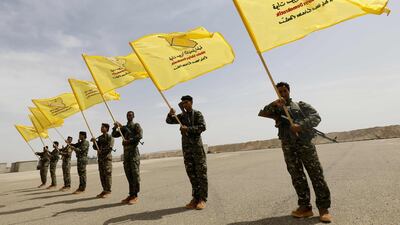A Syrian Kurdish group said on Saturday it had decided with the government to "chart a roadmap to a democratic and decentralised Syria", but there was no immediate confirmation from Damascus.
Relations between the Syrian government of President Bashar Al Assad and the Kurdish-led administration in the northeast, the two sides that hold the most territory in Syria, have been pivotal in the course of the seven-year-old civil war.
However, while they have mostly avoided direct conflict, they have articulated sharply opposing visions for the future, with the Kurds seeking autonomy in a decentralised state, and Damascus wanting to restore full central control.
The Kurdish-led Syrian Democratic Council (SDC) said it and the government had decided to "form committees on various levels" to develop negotiations, end the violence engulfing Syria and chart a roadmap to democracy and decentralisation.
It said it met Syrian government officials in Damascus this week at President Assad's invitation after initial meetings in Tabqa on the Euphrates river that focused on restoring local services.
__________
Read more:
'We are trapped': White Helmets plead for evacuation from Syria
Syrian regime launches ground offensive in Deraa
White Helmets vow to keep saving lives in face of funding freeze
__________
The SDC is the political wing of the US-backed Syrian Democratic Forces (SDF), which gained control of the quarter of Syria east of the Euphrates, an area that includes farmland and oil and water resources, during the fight against Islamic State.
The talks pointed to moves by the Kurdish-led authorities to seek a deal with President Assad to preserve their autonomy as he regained most rebel areas with Russian and Iranian help while they have grown wary of their unpredictable US ally.
President Assad has sworn to regain "every inch" of Syria but said in May for the first time that he was "opening doors" for talks with the SDF, while also threatening force. He has described the Kurdish administration's democratic bodies in the northeast as "temporary structures".
"It's hard to see how they will reach more substantive agreement in the coming months because you just have a huge gap between the two sides on what the future of this region should look like," said Noah Bonsey, the International Crisis Group's Senior Analyst on Syria.
Any Syrian Kurdish negotiations with Damascus would also generate new questions for US policy in Syria, where the US military has deployed into SDF-held territory during the campaign against ISIS.
The Syrian Kurds have been put on guard towards Washington over the Trump administration's conflicting statements about its plans in Syria, and over pressure exerted on the United States by Turkey, which has staged military incursions into Syria to battle the YPG, a Kurdish militia that spearheads the SDF.

